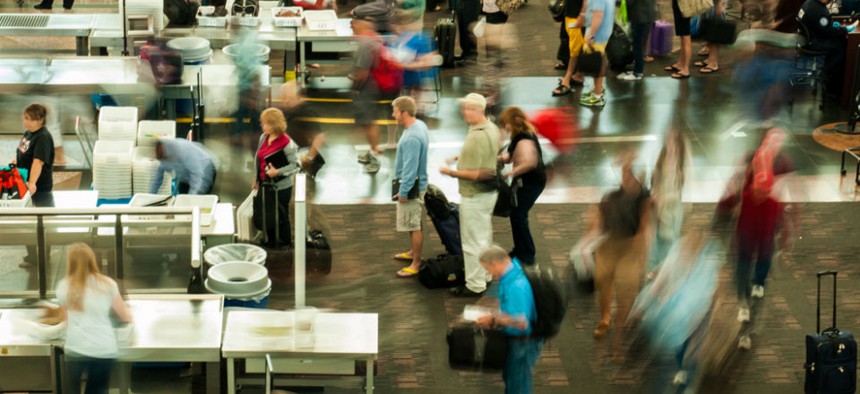
Arina P Habich/Shutterstock.com
TSA Gave Expedited Screening to Former Domestic Terror Group Member
A supervisor overruled an alert officer who recognized the felon and raised concerns.
The Transportation Security Administration designated a “notorious convicted felon” as suitable for expedited airport screening, allowing the passenger to sail through security without removing his shoes, belt, electronic equipment and toiletries for more rigorous inspection.
When an alert TSA officer recognized the individual from media coverage and reported the situation to a supervisor, the supervisor “directed the officer to take no action and allow the traveler to continue through the TSA PreCheck lane,” according to an investigation by the Homeland Security Department inspector general, which was prompted by a whistleblower complaint.
The incident raises serious questions about vulnerabilities in TSA’s approach to the expedited screening program, known as PreCheck.
The individual did not apply for the PreCheck program, which was designed to help low-risk frequent travelers navigate airport security more quickly and easily. The program vets applicants based on biographical information and compares fingerprints against intelligence-based data systems. If the individual had applied for the PreCheck program, he would have received a letter of ineligibility “because of the traveler’s convictions for murder and offenses that involve explosives,” the IG wrote in a heavily redacted report.
Instead, the individual was designated for expedited screening under TSA’s “Secure Flight” program that compares self-reported traveler information, such as name, date of birth and gender, to the government’s no-fly list and other intelligence-based data systems maintained by TSA and other federal agencies.
“TSA was unable to provide documentation regarding the traveler’s Secure Flight vetting results” for the June 29, 2014, flight, because the agency purges those records within seven days of travel, the IG said.
The IG recommended TSA halt the secure flight program, but TSA rejected that suggestion on the grounds that the individual wasn’t on a watch list, so therefore didn’t pose an elevated risk.
The IG didn’t buy that argument: “TSA said it relies on the U.S. government watchlisting process to identify individuals that represent an elevated risk to commercial aviation. However, not all non-watchlisted passengers are lower-risk and eligible for TSA PreCheck,” the report noted.
In a statement, Rep. Bennie G. Thompson, D-Miss., ranking member of the Committee on Homeland Security, said he was concerned about TSA’s use of expedited screening.
“This new report comes just after a December Government Accountability Office report on PreCheck and problems with the managed inclusion program. Both these reports illustrate shortcomings with the methods TSA uses to identify low risk passengers and demand a legislative response,” Thompson said.
He plans to unveil a bill March 25 that addresses the risk, he said.
(Image via Arina P Habich/Shutterstock.com)







